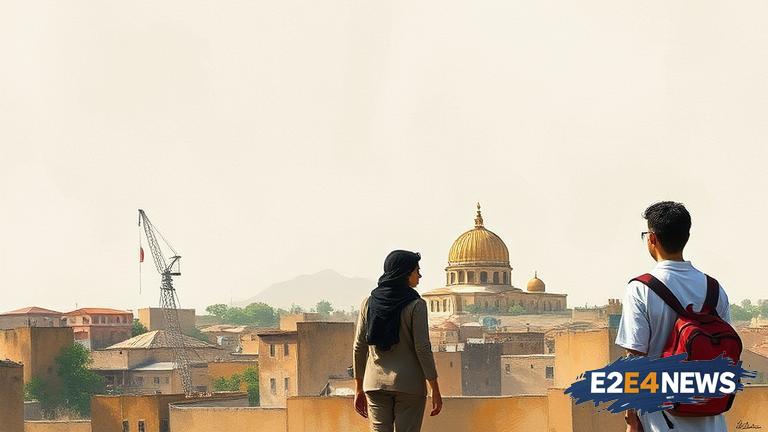The Gaza Strip, a region with a long history of conflict and economic hardship, is home to a population of young and ambitious students eager to pursue their education abroad. However, these students are facing significant challenges in obtaining visas to study in countries such as the UK and US. Despite being accepted into prestigious universities, many students from Gaza are being denied visas or experiencing lengthy delays in the decision-making process. This uncertainty is causing significant stress and anxiety for these students, who are often forced to put their academic and career aspirations on hold. The BBC has reported on the plight of these students, highlighting the difficulties they face in navigating the complex and often unpredictable visa application process. One student, who wished to remain anonymous, told the BBC that she had been accepted into a university in the UK but was denied a visa due to concerns about her financial situation. Another student, who had been accepted into a university in the US, reported that his visa application had been delayed for over a year, causing him to miss an entire academic year. The students’ experiences are not unique, with many others from Gaza facing similar challenges in obtaining visas to study abroad. The situation is further complicated by the fact that the Gaza Strip is under a blockade, which limits the movement of people and goods in and out of the region. This blockade, imposed by Israel and Egypt, has had a devastating impact on the economy and infrastructure of Gaza, making it even more difficult for students to access education and employment opportunities. The international community has called for an end to the blockade, citing its disproportionate impact on civilians, including students. However, the situation remains unresolved, leaving students from Gaza to navigate the complexities of the visa application process on their own. The UK and US governments have been criticized for their handling of visa applications from Gaza, with many arguing that the process is unfair and biased against students from the region. In response to these criticisms, the governments have stated that they are committed to supporting students from Gaza and ensuring that the visa application process is fair and transparent. However, for many students, the reality is far from this, with long delays and unpredictable decisions causing significant disruption to their academic and career plans. The impact of these visa decisions is not limited to the individual students, but also has a broader impact on the community and economy of Gaza. By denying students the opportunity to study abroad, the international community is also denying Gaza the opportunity to develop its own human capital and build a more sustainable and prosperous future. The students’ stories are a testament to the resilience and determination of the people of Gaza, who continue to strive for a better future despite the many challenges they face. As the international community continues to grapple with the complexities of the Israeli-Palestinian conflict, it is essential that the rights and aspirations of students from Gaza are not forgotten. The situation highlights the need for a more nuanced and compassionate approach to visa decision-making, one that takes into account the unique challenges and circumstances faced by students from Gaza. Ultimately, the ability of students from Gaza to access education and employment opportunities abroad is crucial to the development of the region and the realization of a more peaceful and prosperous future. The international community must work together to ensure that the visa application process is fair, transparent, and free from bias, and that students from Gaza are given the opportunity to realize their full potential. The students’ experiences serve as a reminder of the importance of education and its role in promoting economic development, social mobility, and peace. As the world continues to navigate the complexities of globalization and migration, it is essential that the rights and aspirations of students from Gaza are protected and promoted. The situation in Gaza is a stark reminder of the need for a more equitable and just approach to international relations, one that prioritizes the needs and aspirations of all people, regardless of their nationality or background.
